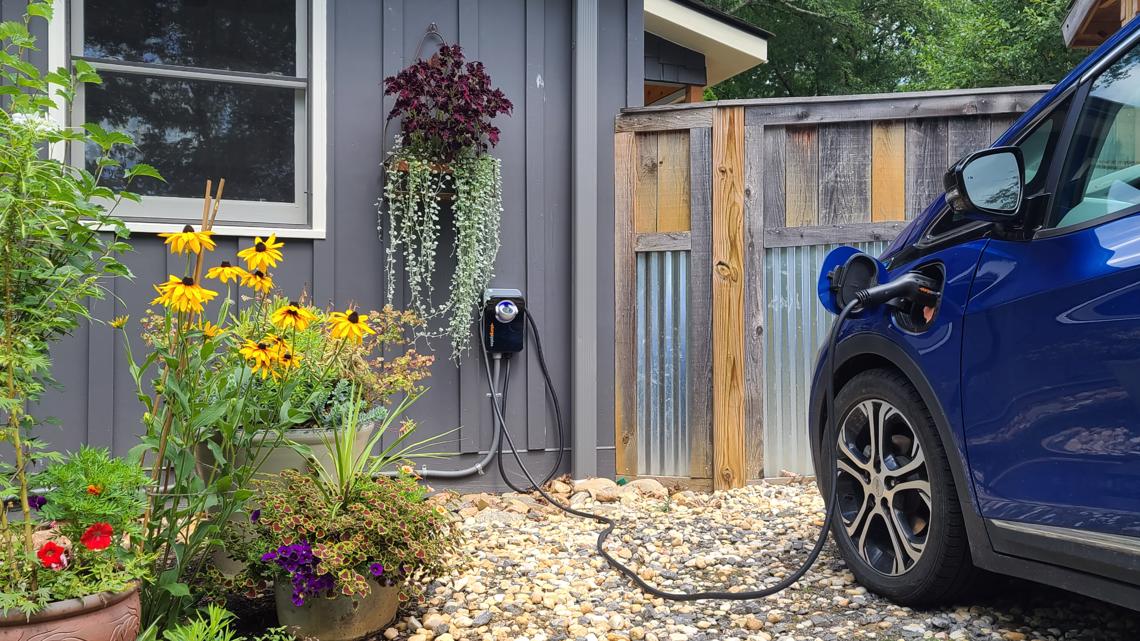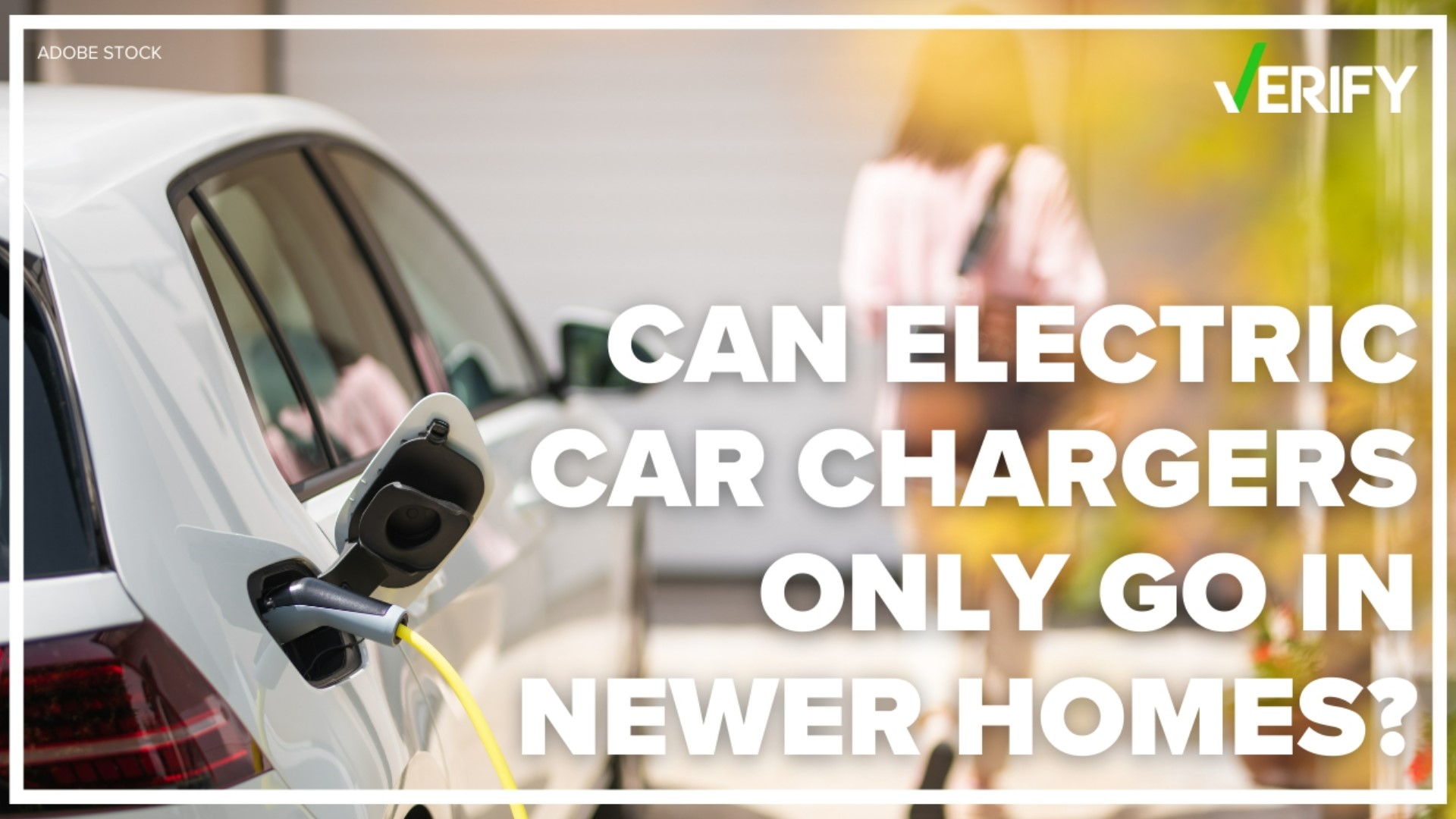CHARLOTTE, N.C. — As more Americans become interested in buying electric vehicles, electricians have been fielding questions from homeowners about installing chargers for their new cars.
Colleen P. from Kannapolis emailed the WCNC Charlotte Verify team to ask about the impact of the age of a home in the installation of an electric vehicle charger.
THE QUESTION
Can electric vehicle chargers only go in homes built in the 2000s and later?
OUR SOURCES
- Daniel Hyman, an electrician with All Electric Services in North Carolina
- Stan Cross, Southern Alliance for Clean Energy
THE ANSWER
No, electric vehicle chargers aren't limited to homes built in the 2000s and later.
WHAT WE FOUND
It's important to understand what an at-home electric vehicle (EV) charger is.
Below is a picture of one installed on the side of Cross's home. Typically, Cross said, chargers are on the side of a home or in a garage.


Electric vehicle chargers require anywhere between 30 to 60 amps of electricity.
"Installing an EV charger is like installing a clothes dryer," Cross said. "So it is a lot of power, but it's not a tremendous amount of power. It's just like your dryer."
Electricians are trained in installing EV chargers. Hyman said they look at how big the home's electrical panel is, and what other appliances it's powering.
"What is the rest of your utilities?" Hyman said. "Is it natural gas or electric? Things like that."
Hyman said he has installed electric vehicle chargers on homes from the '80s and '90s, but it's about assessing how much power the current panel can handle. Sometimes, Hyman said, installing a subpanel next to the original panel will accommodate an EV charger.
"My home was built in the '70s," Cross said. "And when I installed an EV charger, I had no problem at all. I had plenty of room in the panel box."
EV at-home chargers can cost between $400-$500 to install by an electrician, according to Hyman. If a new panel needs to be installed, that costs a few thousand dollars.
VERIFY is dedicated to helping the public distinguish between true and false information. The VERIFY team, with help from questions submitted by the audience, tracks the spread of stories or claims that need clarification or correction. Have something you want VERIFIED? Text us at 704-329-3600 or visit /verify.

